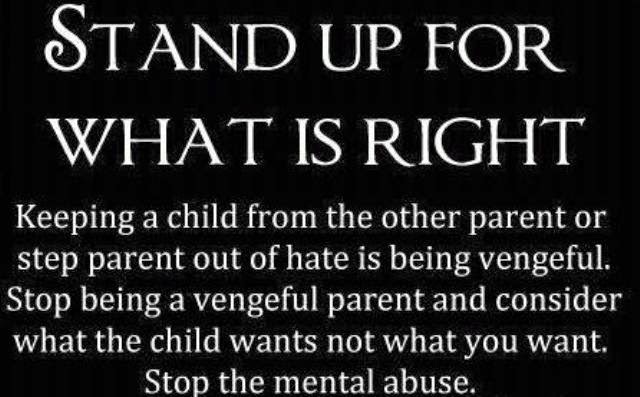Divorced Parents: Kids Should Decide Where They Live/Custody
Divorce can be ugly, but it doesn't have to be ugly for the kids.
Parents who are divorcing often get sucked into a nasty competition when it comes to the kids, with each parent vying for custody of the kids. Of course, both parents often want to keep the kids with them, which frequently results in joint custody. Once the arrangement is set, the kids shuffle between Mom's and Dad's respective houses, while the parents often avoid asking the kids what they want to do or with whom they want to live.
Well, the truth is that there are endless misconceptions about divorce and its effect on kids. Many people feel that divorce is psychologically harmful for kids, though the research - and I'm referring to Judith Wallerstein's research, in particular - actually shows that divorce does not harm children over the long-term unless other factors come into play. For example, divorced parents who maintain a bitter relationship post-divorce and talk badly about each other to the kids can cause kids major anxiety and distress. But aside from such instances, there are many things that divorced parents can do to limit the harm caused to the kids.
One thing divorced parents can do is make an ongoing effort to check in with the kids about how they feel about the assigned living arrangements. While children are young (10 years or younger), joint custody can provide an important reminder to the kids that their parents still love them and will both remain a fundamental part of the kids' lives. Yet the problem often starts when the kids get a little older.
Once kids reach the puberty years, they start to have a more active social life. During this time, kids start to develop the beginnings of an adult identity, and they start to make some of their own decisions. As they reach adolescence, kids of divorced parents understandably want more control over their environment, including where and with whom they live. Plus, as kids get older, the homework increases and their extracurricular activities become more involved. In other words, gathering all their stuff (books, notebooks, special articles of clothing, sports equipment, etc.) and dragging everything from one house to the other gets difficult. If a child in this situation doesn't particularly want to live with one of the parents, the child will become resentful and the resentment will manifest in a variety of acting-out behaviors.
If you are a parent who shares joint custody with your ex and your child is approaching the teenage years, set your own feelings and ego aside and ask your child how he or she feels about the living arrangements. Sure, it can be awfully hurtful to give up time with a child you adore, but sometimes letting someone go (a little) is the best way to show your love for them. Most importantly, divorced parents need to remember that the child did not choose for his or her parents to get married or divorced, so they should suffer as little as a possible as a result of the failed relationship.
Ultimately, talk-talk-talk to your child. Give your child a space to say how he or she really feels about the living arrangements, and try not react too emotionally to whatever they say. Though navigating these years can be difficult, the most successful parent-child relationships will always be those where the child feels that his or her feelings are respected.
If it turns out that your child would prefer to live with the other parent, work on developing a compromise that makes your child feel heard and simultaneously allows you to still spend meaningful time with your child. The teenage years are a great time to make an adjustment to the living arrangements, which could include the following: rotating houses in intervals of one or two weeks, as opposed to every few days; one parent having the child during the academic year, while the other has the child during the summer; maintaining the usual plan of 50/50 time during the academic year, but living with only one of the parents during the summer.
Ultimately, the point is to listen to your child, focus more on his or her feelings than your own, and model how to compromise. If you compromise with your child about custody now, you might find twenty years from now that your relationship with your child is stronger because of it.
Feel free to check out my book on relationships, Overcome Relationship Repitition Syndrome and Find the Love You Deserve, or follow me on Twitter!

Should kids live with both parents after divorce? Father's rights advocates say YES!
The Des Moines Register | DesMoinesRegister.com

The Des Moines Register | DesMoinesRegister.com






































